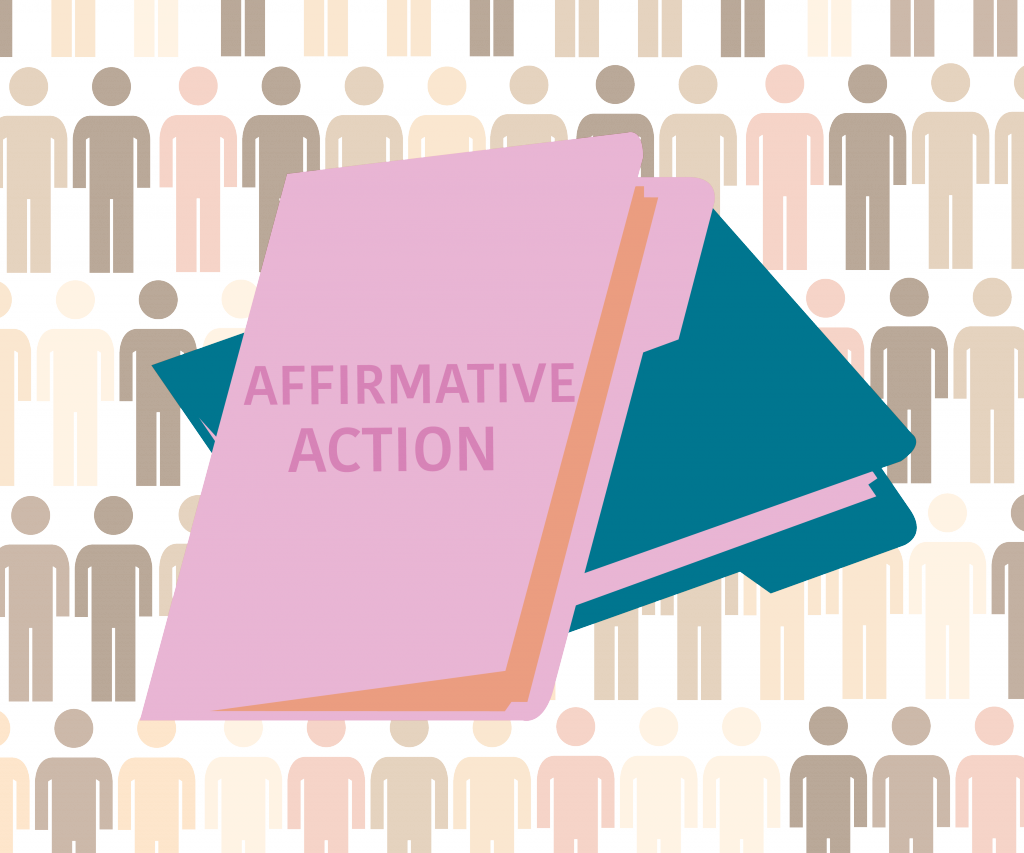In an effort to evaluate diversity and hiring practices on campus, Binghamton University will be working on its first comprehensive affirmative action report in 10 years with the help of Affirmity, a software support company that uses workforce analytics to report the patterns of diversity within an institution.
The report, which was requested by the Division of Diversity, Equity and Inclusion, will outline BU’s strengths in diversity practices as well as its weaknesses and areas of improvement.
Affirmity will use past employee rosters and evaluate the workforce across New York state to compare it with BU and assess the University’s representation of all demographics. Nicole Sirju-Johnson, interim chief diversity officer, wrote in an email that the report is a tool to help institutions in case they are randomly audited by the Office of Federal Contract Compliance Programs, the entity that conducts federal audits of all federal contractors. According to Sirju-Johnson, the report will aim to reveal how BU’s hiring practices compares with other schools on a national level.
“The overall goal of reports received from [Affirmity] is to serve as a guide for our initiatives around diversity hiring and retention in addition to revealing new information we need to be aware of as it relates to compliance goals with the federal government,” Sirju-Johnson wrote.
Sirju-Johnson wrote that organizations are usually audited every 10 years, and since BU has not been audited in a decade, it should be prepared.
“It is among the primary initiatives I wanted to conduct in coming into the role of interim chief diversity officer,” Sirju-Johnson wrote. “If the campus is to be intentional about [its] diversity, we cannot arbitrarily prescribe change, we need real data to indicate the areas in need of our immediate efforts, specifically as it relates to what the government wants to see of its contractors.”
Anne Bailey, a professor of history at BU, said she believes it is crucial for the public to have a clear understanding of the history behind affirmative action to recognize why it is still currently needed in many higher education schools.
“What was missing, as far as I was concerned, was not enough on the history of affirmative action,” Bailey said. ”And, as a historian, I think that really matters, because you can’t really talk about where we are now or where we are going unless you understand what the reason for affirmative action was, what the purpose was, why it started in the first place, the circumstances and if those circumstances are still pertinent.”
Affirmative action was coined by U.S. President John F. Kennedy in an attempt to address issues of equity and access for people in underrepresented groups in the United States, according to Bailey. While the initiative focused specifically on the black population during the time, it was still meant to apply to any underrepresented ethnic groups who lacked equal access to educational or employment opportunities. Bailey said although many opponents of affirmative action wrongly accuse the practice of hiring unqualified candidates for certain positions, it is really meant to give opportunities to the qualified people in underrepresented groups.
“You’re not going to level the playing field so quickly,” Bailey said. “That would be miraculous. So the need for affirmative action is there. I’m glad that Binghamton is doing this report.”
Harry Bittker, BU Council student representative and a senior majoring in political science, wrote in an email that he felt collecting data is crucial in making accurate evaluations about BU’s diversity practices in enrollment and employment.
“I think having data behind your decisions is critical in any context, and diversity is no different,” Bittker wrote. “I’m looking forward to seeing the insights that the report reveals about the university and our opportunities to grow as a diverse and representative institution.”
Correction: In a previous version of this article, the software support company contracted by Binghamton University was incorrectly identified as PeopleFluent. The correct company is Affirmity, a former division of PeopleFluent that recently launched as its own brand. Pipe Dream regrets the error.



